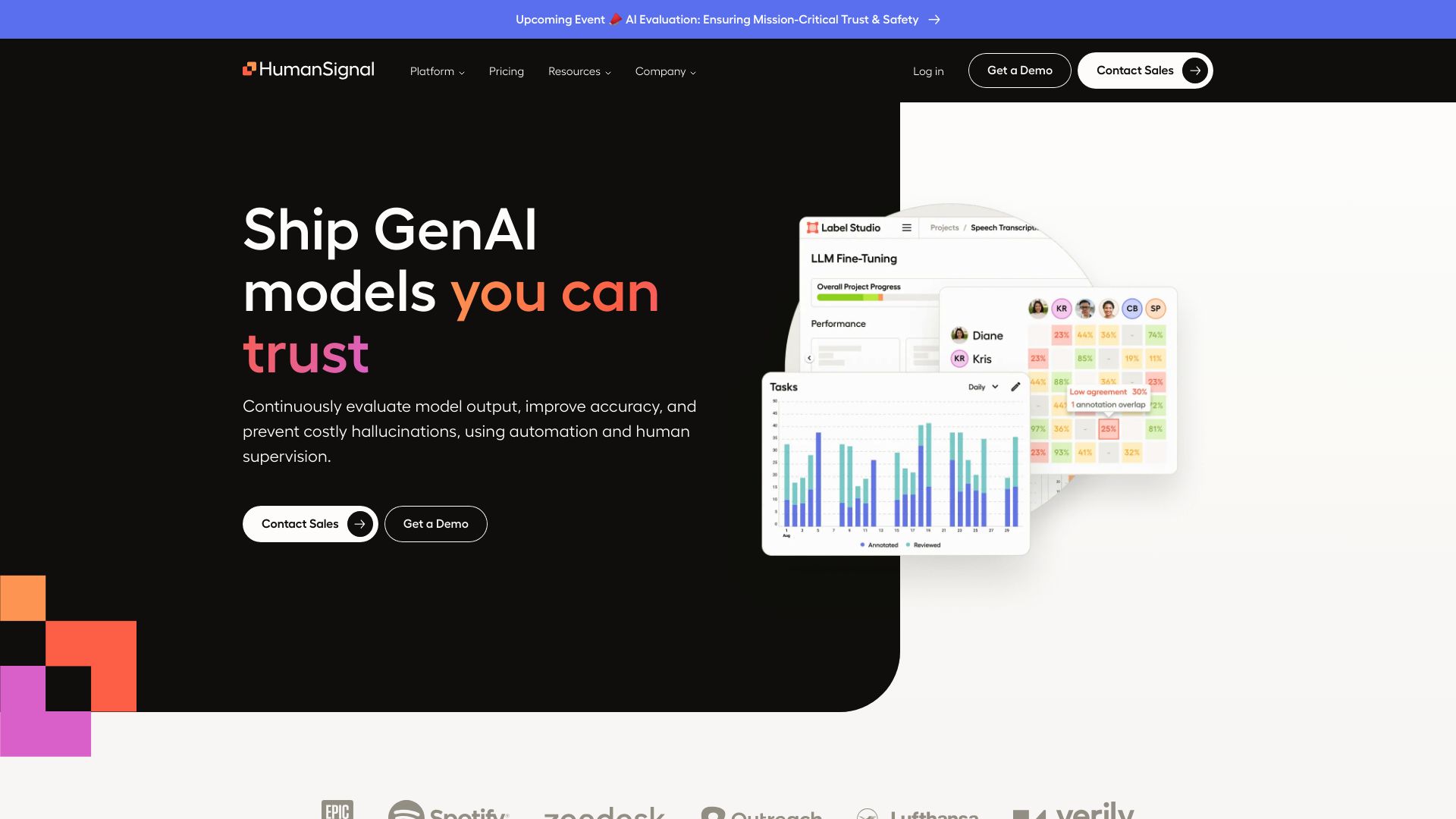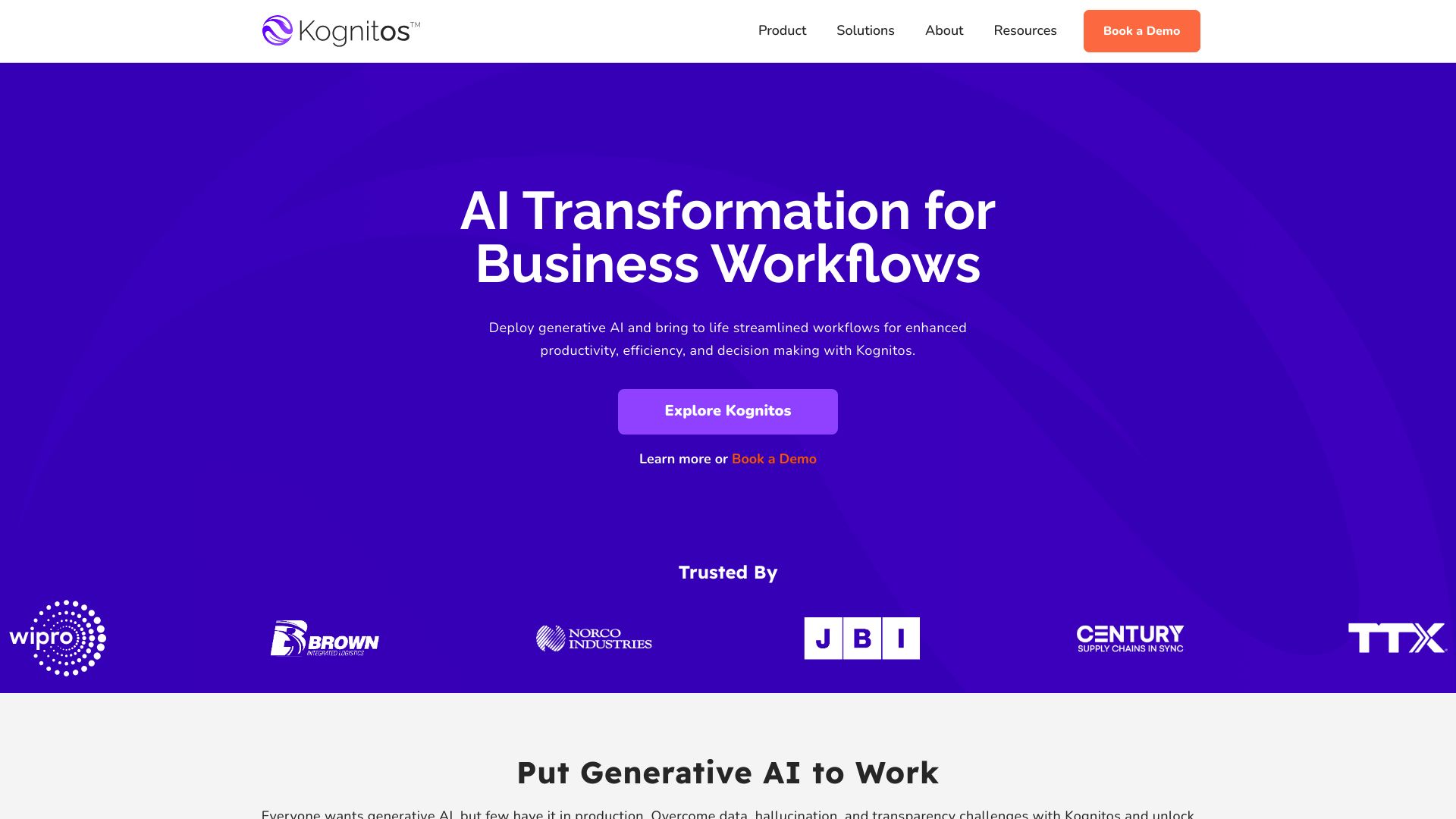Adala vs. Kognitos: AI Automation Showdown
AI-powered automation platforms revolutionize business processes, data labeling, and decision-making. This comparison between Adala vs. Kognitos explores Adala, an open-source framework for autonomous data labeling agents, and Kognitos, a natural language-driven business process automation solution.
We evaluate their core functionalities, strengths, and limitations, contrasting them with SmythOS, our comprehensive AI development platform. Developers, business leaders, and AI enthusiasts will gain insights into each platform’s capabilities, integration options, and suitability for various use cases. By examining features like model support, deployment flexibility, and security measures, readers can make informed decisions about the best AI solution for their specific needs.
Adala Overview
Adala transforms data labeling with autonomous AI agents. This open-source framework empowers developers to create specialized agents that learn and refine data processing skills through iterative interactions.


Adala’s core functionality revolves around large language models like GPT-3, which serve as the runtime for executing agent skills and tasks. Users can train agents in text classification, summarization, and question-answering through labeled ground truth datasets. The framework emphasizes reliability by incorporating human feedback loops, allowing agents to refine their predictions and maintain high-quality output.
Adala’s core functionality revolves around large language models… which serve as the runtime for executing agent skills and tasks.
The platform’s modular architecture facilitates extensibility, with components for skills, runtimes, datasets, and environments. This design encourages community contributions and adaptations. Adala supports both short-term and long-term memory for agents, enabling them to learn from past interactions and apply that knowledge to future tasks.
While Adala excels in creating autonomous data labeling agents, it lacks some features found in more comprehensive AI development platforms. The framework does not include a visual builder or no-code editor, requiring users to interact through code and APIs. Additionally, there’s no explicit mention of multimodal capabilities or support for specific file formats like PDFs or Word documents.
Adala’s focus on data labeling and processing tasks makes it particularly suitable for developers and researchers working on improving data quality and efficiency in AI projects. Its open-source nature and emphasis on community involvement position it as a valuable tool for those seeking to customize and extend AI agent capabilities in specialized data processing domains.
Kognitos Overview
Kognitos delivers an AI-powered automation platform that revolutionizes business processes through natural language interactions. The software enables users to build, manage, and deploy intelligent automations using plain English commands, eliminating the need for complex programming skills.


At its core, Kognitos leverages generative AI to create adaptable automation solutions. Users interact with the system through natural dialogue, allowing the AI to learn and improve over time. This approach makes sophisticated automation accessible to non-technical staff while providing powerful tools for developers and IT teams.
Kognitos leverages generative AI to create adaptable automation solutions. Users interact with the system through natural dialogue, allowing the AI to learn and improve over time.
Kognitos differentiates itself by eliminating traditional RPA bot management. The platform runs entirely from a browser, utilizing stable API-based automations instead of brittle screen scraping techniques. This cloud-native architecture enables seamless integration with third-party applications across multiple operating systems.
The software excels at handling exceptions and variations in processes. As users provide input to resolve unexpected scenarios, Kognitos learns and adapts, becoming increasingly autonomous over time. This self-learning capability, combined with its natural language interface, positions Kognitos as a highly flexible solution for complex, evolving business environments.
The software excels at handling exceptions and variations in processes… Kognitos learns and adapts, becoming increasingly autonomous over time.
While Kognitos offers significant advantages in usability and adaptability, potential users should consider their specific integration needs and existing technology stack when evaluating the platform. The reliance on cloud-based operations may require adjustments for organizations with strict on-premises requirements. Additionally, as with any AI-powered system, ongoing oversight and governance are crucial to ensure automations align with business goals and compliance standards.
Feature Comparison
Adala vs. Kognitos offer distinct approaches to AI-powered automation, each with unique strengths and limitations. Adala focuses on autonomous data labeling agents, while Kognitos provides a natural language interface for business process automation.
Adala excels in creating specialized AI agents for data labeling tasks. It leverages large language models as the core runtime, allowing agents to learn skills like text classification and summarization. The platform emphasizes reliability through human feedback loops and supports both short-term and long-term memory for continuous improvement. However, Adala lacks a visual builder or no-code editor, requiring users to interact through code and APIs.
Kognitos, on the other hand, prioritizes accessibility with its natural language interface. Users can build and manage automations using plain English commands, eliminating the need for complex programming skills. The platform runs entirely from a browser, utilizing stable API-based automations instead of screen scraping techniques. Kognitos excels at handling exceptions and variations in processes, becoming increasingly autonomous over time. However, its reliance on cloud-based operations may pose challenges for organizations with strict on-premises requirements.
In terms of security features, both platforms have gaps. Adala does not explicitly mention data encryption, OAuth, or IP control capabilities. Kognitos, while emphasizing cloud-native architecture, also lacks detailed information about specific security measures like data encryption or OAuth implementation. This highlights a potential area for improvement in both platforms to address enterprise-level security concerns.
| Adala | Kognitos | SmythOS | |
|---|---|---|---|
| CORE FEATURES | |||
| Hosted Agents (Dev, Production) | ❌ | ✅ | ✅ |
| Visual Builder | ❌ | ❌ | ✅ |
| No-Code Options | ❌ | ✅ | ✅ |
| Debug Tools | ❌ | ✅ | ✅ |
| Multimodal | ❌ | ✅ | ✅ |
| Multi-Agent Collaboration | ❌ | ✅ | ✅ |
| Audit Logs for Analytics | ❌ | ✅ | ✅ |
| SECURITY | |||
| Constrained Alignment | ✅ | ❌ | ✅ |
| Data Encryption | ❌ | ✅ | ✅ |
| OAuth | ❌ | ✅ | ✅ |
| IP Control | ❌ | ❌ | ✅ |
| COMPONENTS | |||
| Huggingface AIs | ❌ | ✅ | ✅ |
| Zapier APIs | ❌ | ❌ | ✅ |
| All other APIs, RPA | ❌ | ✅ | ✅ |
| Data Lakes | ❌ | ❌ | ✅ |
| DEPLOYMENT OPTIONS (EMBODIMENTS) | |||
| Deploy as Webhook | ❌ | ❌ | ✅ |
| Staging Domains | ❌ | ✅ | ✅ |
| Production Domains | ❌ | ✅ | ✅ |
| API Authentication (OAuth + Key) | ❌ | ✅ | ✅ |
| Deploy as Site Chat | ❌ | ❌ | ✅ |
| Deploy as Scheduled Agent | ❌ | ✅ | ✅ |
| Deploy as GPT | ✅ | ❌ | ✅ |
| DATA LAKE SUPPORT | |||
| Hosted Vector Database | ✅ | ❌ | ✅ |
| Sitemap Crawler | ❌ | ❌ | ✅ |
| YouTube Transcript Crawler | ❌ | ✅ | |
| URL Crawler | ❌ | ❌ | ✅ |
| PDF Support | ❌ | ✅ | ✅ |
| Word File Support | ❌ | ✅ | ✅ |
| TXT File Support | ❌ | ✅ | ✅ |
Best Alternative to Adala and Kognitos
SmythOS stands out as the superior alternative to Adala and Kognitos, offering a comprehensive AI agent development platform that combines power with accessibility. Our solution addresses the limitations of both competitors while providing a robust set of features designed for scalability and ease of use.
Unlike Adala’s narrow focus on data labeling and Kognitos’ emphasis on natural language automation, SmythOS delivers a versatile platform capable of handling a wide array of AI agent tasks. We offer a visual builder and no-code options, making advanced AI development accessible to users of all skill levels. This approach democratizes AI creation, allowing both technical and non-technical teams to build sophisticated agents without extensive programming knowledge.
SmythOS delivers a versatile platform capable of handling a wide array of AI agent tasks… making advanced AI development accessible to users of all skill levels.
Security is a top priority for SmythOS. We implement robust measures including data encryption, OAuth integration, and IP control — features notably absent or unclear in Adala’s offering. Our platform also provides constrained alignment capabilities, ensuring AI behaviors align with organizational goals and ethical guidelines.
SmythOS excels in deployment flexibility, a critical advantage over both Adala and Kognitos. We support multiple deployment options, including APIs, webhooks, site chats, scheduled agents, and even integration with platforms like GPT. This versatility allows businesses to seamlessly incorporate AI agents into their existing workflows and systems, regardless of the specific use case or industry.
Our platform’s extensive integration capabilities further set it apart. SmythOS supports a wide range of APIs, including Zapier, and offers compatibility with popular AI models from providers like Hugging Face. This expansive ecosystem ensures that our users can leverage the best tools and technologies available, creating AI solutions tailored to their unique needs.
Conclusion
Adala and Kognitos offer innovative approaches to AI-powered automation, but SmythOS emerges as the superior choice for businesses seeking comprehensive AI solutions. Adala excels in autonomous data labeling, while Kognitos focuses on natural language interfaces for process automation. However, both platforms have limitations in their feature sets and deployment options.
SmythOS combines the strengths of its competitors and adds significant value through its extensive capabilities. Our platform’s visual builder and no-code interface make AI development accessible to both technical and non-technical users. We offer unparalleled flexibility with support for multiple AI models, extensive API integrations, and diverse deployment options including APIs, chatbots, and scheduled agents.
Security remains a top priority for SmythOS. Unlike Adala and Kognitos, which lack explicit security features, we implement robust measures including data encryption, OAuth, and IP control. This comprehensive approach ensures that businesses can leverage AI power without compromising on data protection or compliance.
For organizations looking to harness the full potential of AI, SmythOS provides the most versatile and powerful solution. Create a free SmythOS account today and experience how our platform can transform your business processes, boost efficiency, and drive innovation across your enterprise.
Last updated:
Disclaimer: The information presented in this article is for general informational purposes only and is provided as is. While we strive to keep the content up-to-date and accurate, we make no representations or warranties of any kind, express or implied, about the completeness, accuracy, reliability, suitability, or availability of the information contained in this article.
Any reliance you place on such information is strictly at your own risk. We reserve the right to make additions, deletions, or modifications to the contents of this article at any time without prior notice.
In no event will we be liable for any loss or damage including without limitation, indirect or consequential loss or damage, or any loss or damage whatsoever arising from loss of data, profits, or any other loss not specified herein arising out of, or in connection with, the use of this article.
Despite our best efforts, this article may contain oversights, errors, or omissions. If you notice any inaccuracies or have concerns about the content, please report them through our content feedback form. Your input helps us maintain the quality and reliability of our information.
